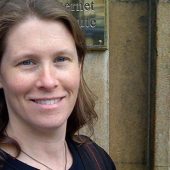
Professor Mike Thelwall
Former Research Associate
Mike Thelwall is Professor of Information Science and leader of the Statistical Cybermetrics Research Group at the University of Wolverhampton. His interests include webometrics, cybermetrics, blogs, Web 2.0, and scientometrics.







